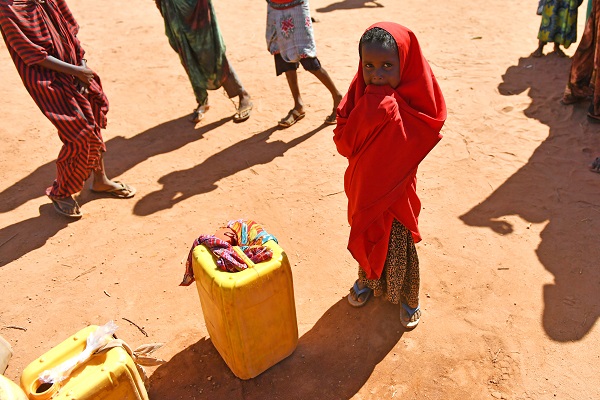74m people in need of humanitarian assistance in Greater Horn of Africa
Published : 30 Mar 2024, 01:49
The number of people who are food insecure and in urgent need of humanitarian assistance in the Greater Horn of Africa rose to 74 million at the end of February, according to a new report released Friday by the Food and Agriculture Organization of the United Nations (FAO) and various other international agencies.
In January, the number of food insecure people stood at 58.1 million, with the FAO and humanitarian agencies, including the United Nations Children's Fund and the International Organization for Migration, attributing the surge to conflicts in different countries in the region and adverse weather events.
The countries affected are Sudan, Ethiopia, Kenya, Djibouti and South Sudan in East Africa, as well as the Democratic Republic of the Congo and the Central African Republic, reported Xinhua.
In Kenya, over 1.5 million people are food insecure, while in Sudan, it is 17.7 million and in South Sudan, 5.7 million, the FAO said. "Sudan's food crisis is expected to continue deepening, driven by constrained food availability, interruptions in trade routes and markets, high commodity prices, livelihood disruptions, constrained humanitarian access, and widespread displacement," the agencies said.
They added that in neighboring countries like the Central African Republic, Chad, Egypt, Ethiopia and South Sudan, the conflict in Sudan is having severe humanitarian implications, marked by a surge in refugee arrivals amid limited humanitarian funding.
"Even before the conflict, these countries were already grappling with other crises, including large numbers of displaced populations, conflict, political upheavals, hunger, and economic challenges," the report said.
The international agencies said that the 2023 El Nino rains contributed to the rise in the number of people in need of humanitarian assistance in the region. With wetter-than-normal conditions forecasted over most parts of the region, specifically in Ethiopia, Kenya, Somalia, South Sudan, Uganda, Burundi, Rwanda and Tanzania, during the 2024 March-May rainfall season, the situation may not improve.
The report calls for close monitoring of the drivers of food insecurity, including climate risks, and strengthening anticipatory action for disaster risk reduction.


